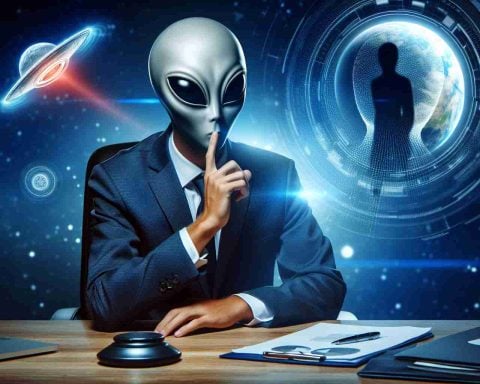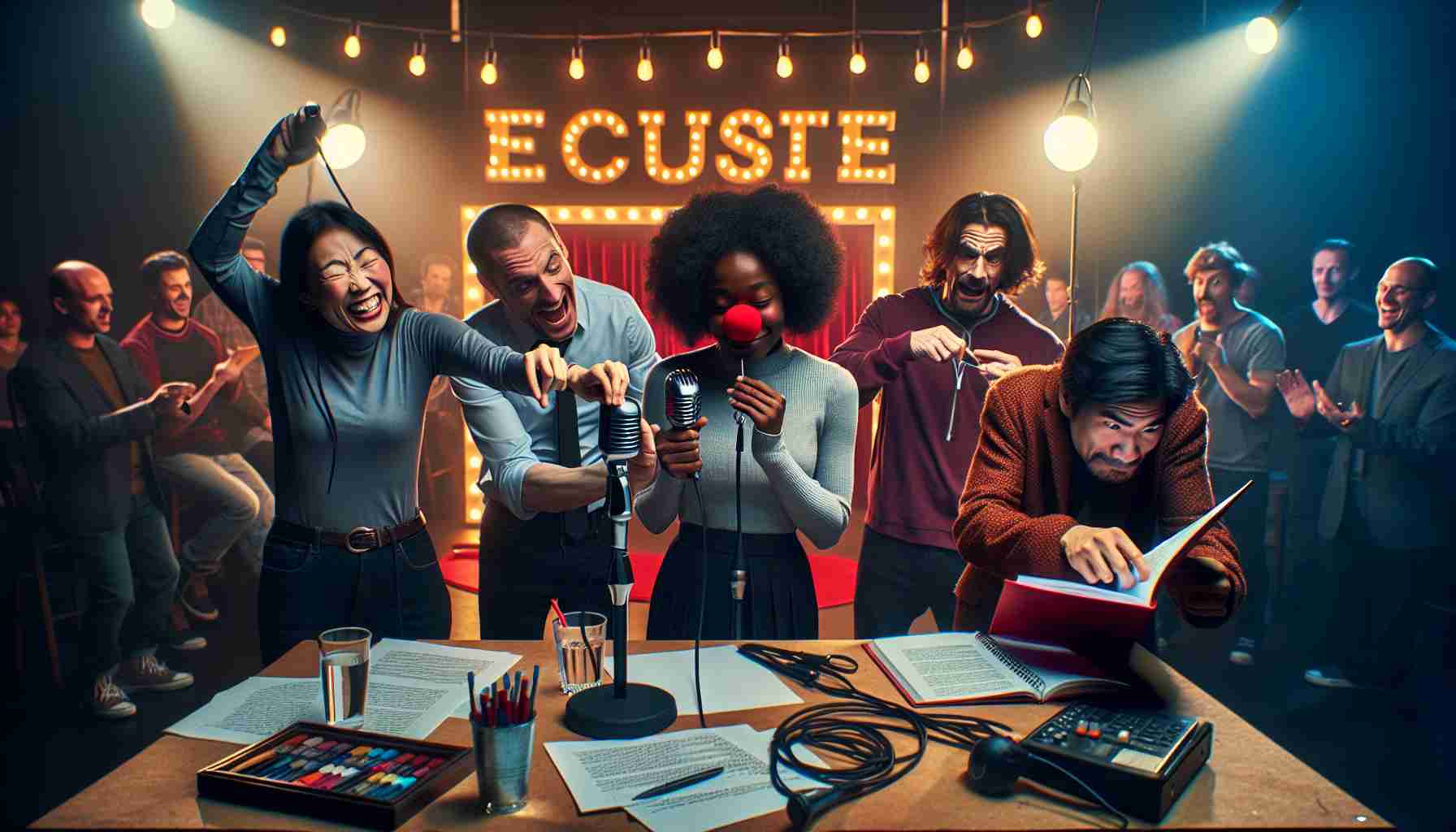- Renowned novelist Tao Lin challenges materialism’s dominance by exploring supernatural phenomena as valid aspects of human experience.
- Materialism often dismisses paranormal phenomena, pushing these beliefs to the fringes of credibility.
- Near-death experiences (NDEs) are highlighted as evidence of consciousness existing beyond physical constraints.
- Walter Kirn adds depth with personal stories, suggesting unexplored layers of existence and human perception.
- The article invites a reconsideration of reality, suggesting a broader existence beyond materialistic views.
A quiet revolution brews in the realm of the unseen, challenging our deeply ingrained notions about what truly exists. Renowned novelist Tao Lin takes readers on a journey into the supernatural, questioning the suffocating grip of materialism. This pervasive worldview, dominating science and education, dismisses anything that defies quantifiable logic, leaving little room for the mysterious or the mystical.
Materialism, the bedrock of mainstream science, often scoffs at paranormal phenomena—phenomena that countless cultures and traditions have embraced as authentic and integral to human experience. Yet, Lin pulls back the curtain on this cold skepticism, offering a perspective that validates those who have felt the brush of the unexplained. He argues that the world’s most trusted platforms, like Wikipedia, reflexively reject the paranormal, relegating believers to the fringes of credibility.
But what if there’s more to these tales than meets the eye? Lin cites compelling research that suggests otherwise, spotlighting near-death experiences (NDEs) as a key example. These accounts paint vivid pictures of consciousness existing beyond the physical confines of a heartbeat or brainwave. Such experiences hint at a realm that defies the rigid laws of our material universe, prompting a wave of questions: Could our consciousness linger even as our bodies lie still?
Walter Kirn, a fellow literary figure, enriches the narrative with personal encounters that starkly illustrate this intangible world. His vivid story of a man’s transfigured visage suggests layers of existence we rarely acknowledge, inviting us to perceive humanity with a fuller lens.
The tug-of-war between materialism and mysticism challenges us to reconsider our understanding of reality. Lin’s exploration invites a daring contemplation: Perhaps there’s a more expansive tapestry of existence waiting just beyond our usual perception, ready to be explored.
The Hidden Truths of Our Universe: Exploring Beyond Materialism
Breaking Down the Barriers Between the Seen and Unseen
In Tao Lin’s provocative exploration of the supernatural world, a quiet revolution stirs, pressing us to question the rigid boundaries of materialism. Materialism, which heavily influences modern science and education, often dismisses supernatural phenomena, which many cultures view as real and profound. Lin, however, challenges this skepticism by presenting compelling research and anecdotes that validate the mystical experiences many have had. He stresses that platforms like Wikipedia typically reject paranormal accounts, labeling such beliefs as lacking credibility.
Could Consciousness Transcend the Physical?
One of the intriguing aspects Lin explores is near-death experiences (NDEs), where individuals claim to have glimpsed a world beyond the physical realm. These experiences often suggest that consciousness might exist independently of our physical bodies. Current research in the field of consciousness studies, including works by researchers like Dr. Eben Alexander and Dr. Bruce Greyson, indicates that NDEs could open doors to understanding consciousness as more than a mere byproduct of brain activity.
Studies have revealed common themes in NDE reports, including feelings of peace, out-of-body experiences, and encounters with supernatural beings. These experiences urge us to rethink the limitations imposed by materialism and explore the possibility of consciousness persisting beyond physical death.
Expanding the Horizon: How Would This Affect Us?
This exploration into the supernatural forces us to reevaluate what we consider reality. If consciousness can indeed transcend the physical, what impact does that have on our understanding of life and death? How might this reshape our philosophical, cultural, and even scientific perspectives?
In terms of technology and science, acknowledging a broader spectrum of realities could lead to new explorations into consciousness and the human mind. Psychic phenomena, meditation, and alternative forms of healing might gain further scientific scrutiny, pushing the boundaries of current technology in quantum physics and neurobiology.
Related Questions and Implications
– How does one differentiate between genuine paranormal phenomena and hallucinations or psychological experiences?
– Scientists use rigorous methodology to study paranormal claims, aiming to distinguish objective phenomena from psychological or neurological conditions. Research often includes controlled experiments and peer-reviewed studies.
– What are the potential societal impacts if evidence of consciousness existing beyond physical life is proven?
– Such a paradigm shift could alter fundamental beliefs about life and death, influencing everything from how we perceive the afterlife to legal and ethical discussions on topics like euthanasia and end-of-life care.
– What would it take for the scientific community to accept paranormal phenomena as a legitimate field of study?
– Verification through reproducible experiments, integration of interdisciplinary approaches, and societal shifts in worldviews could collectively foster acceptance and exploration within scientific circles.
Credible Sources for Further Exploration
For further exploration of these themes and studies, visit reliable sources such as:
– Scientific American
– Nature
In conclusion, Lin’s work invites us to expand our understanding of existence beyond the confines of materialism. By daring to explore the unseen, humanity might unlock new depths of knowledge about reality, consciousness, and our place in the universe.



















